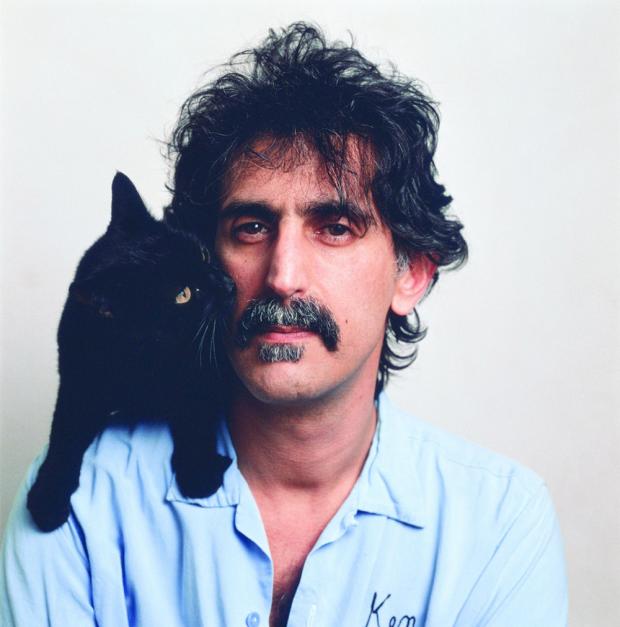Eat That Question: Frank Zappa in His Own Words
Go to YouTube, type in “Frank Zappa” and ”interview,” and you’ll probably find everything you’ll see in Eat That Question, a documentary constituted entirely of excerpts from TV and internet interviews Frank Zappa gave over the years. The benefit of seeing them in this form is that Thorsten Schutte, a German filmmaker who specializes in music documentaries, has gone though all of them (with the permission of Zappa’s estate) to weed out the repetition and redundancies and compile a more or less chronological look at the musician’s career.
The earliest footage is an appearance that even casual fans have already seen, a 1963 bit from the Steve Allen show in which a conservatively attired and very young Zappa uses a bicycle as a musical instrument. His early career is filled in by reminiscences in which Zappa, who was self-taught as a musician, recalls being exposed to composers like Edgar Varese, Anton Webern, and Igor Stravinsky, who sought to broaden as much as possible what could be considered “music.”
But if you don’t already have an appreciation for his brand of musical experimentation, you’re not likely to gain one here. Most of the footage here is from non-mainstream media, primarily public access shows. Zappa wasn’t one to open his soul to interviewers; he usually spoke because he had axes to grind as part of his lifelong war against the music industry and what he saw as the forces of repression. The result is that he seems crabby through most of the film, only lightening up in short performance clips.
It’s fair to say that a large part of Zappa’s audience was drawn to him less for his music than for his scatological and sexually explicit lyrics, which took glee in offending those who could be offended. It would take an objective observer to conclude to what extent Zappa was goading bluenoses and how much he was pandering to audiences that were unlikely to appreciate his music for its own merits. A documentary in the works by Alex Winter may do that, but Schutte makes no such attempt: Per the title, he simply lets Zappa talk. A little context would certainly have helped, such as explaining why Zappa in one clip is being interviewed by what appears to be an American Nazi. And there are areas of interest, such as his work with “outsider” artists like Wild Man Fisher, that are apparently unmentioned because no one ever asked him about them. If you’re a fan, though, it’s a must see. Opens Friday at the Eastern Hills Mall.

